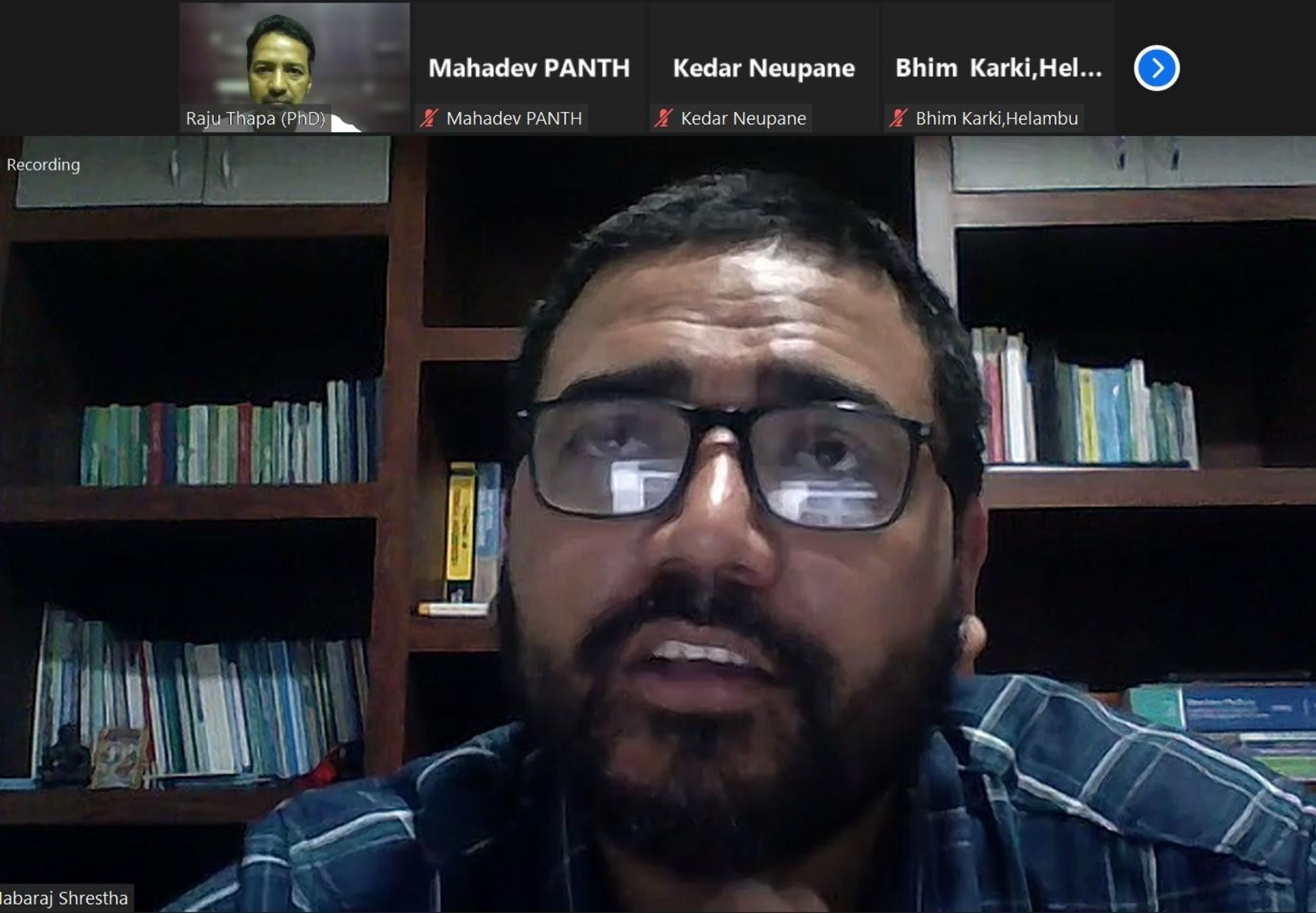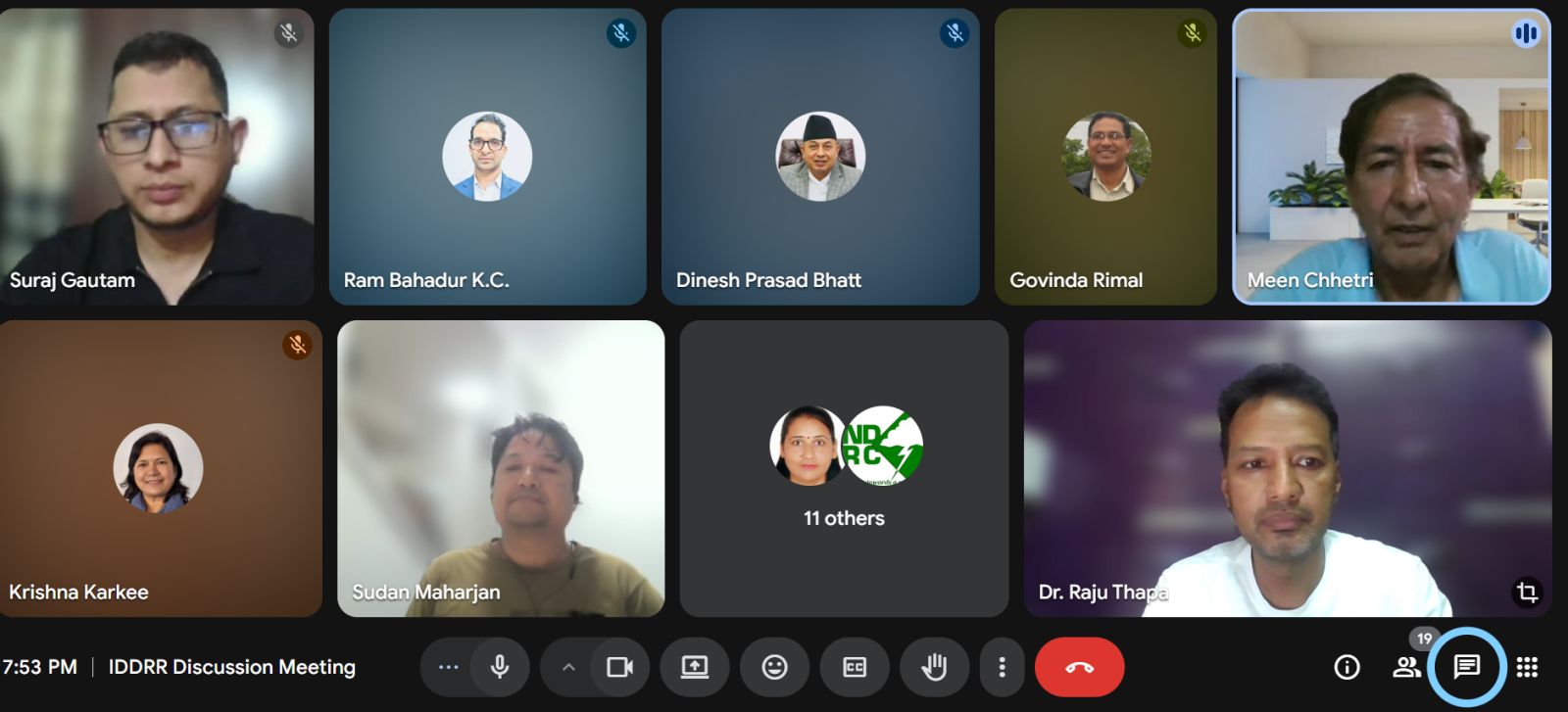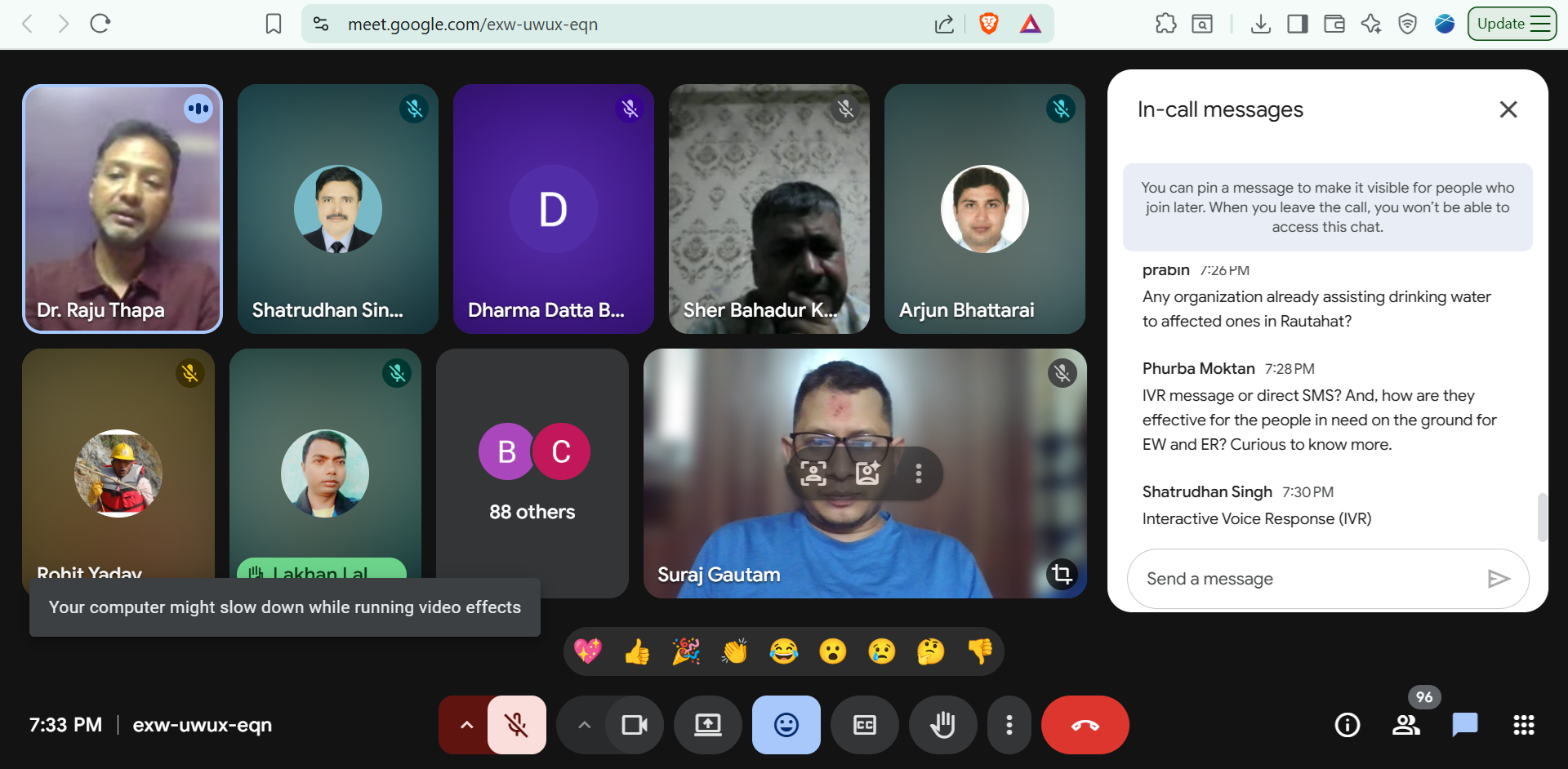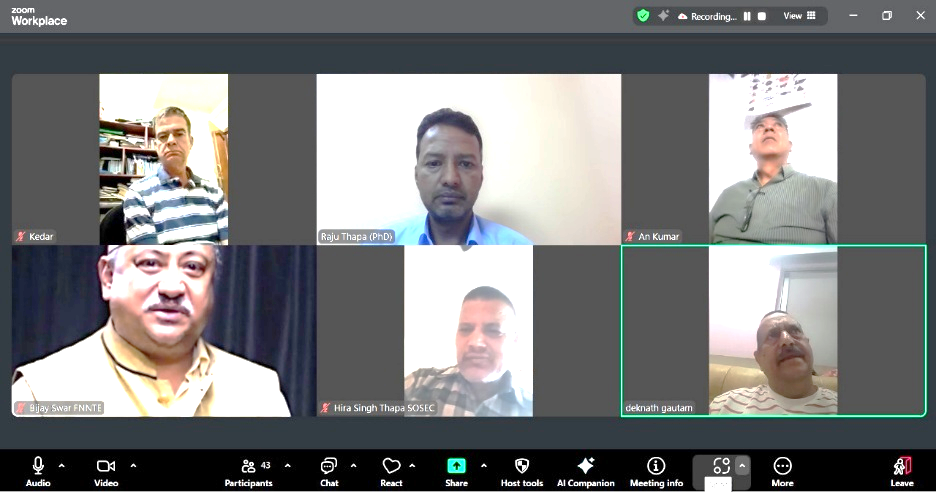Online Interaction Session on “Lumpy Skin Disease Epidemic in Nepal”

On July 31, 2023, DPNet Nepal, organized a virtual interaction session on "Lumpy Skin Disease (LSD) Epidemic in Nepal" via an online platform. The session aimed to raise awareness about the rapid spread of LSD, its causes, impacts, and the necessary preventive measures. It also provided a platform for experts and stakeholders to discuss whether LSD should be classified as a disaster and to explore strategies for assessing and preventing its future occurrence.
The program commenced with a warm welcome to all the participants by Dr. Raju Thapa, the Acting Chair of DPNet Nepal. Dr. Thapa expressed his concerns about the widespread infection of LSD in cattle, leading to heavy losses for farmers, including the loss of animals, reduced dairy production, and its consequent impact on agriculture. He urged for proper budget allocation for relief efforts, and proper mobilization of existing livestock services and emphasized the importance of early preparedness to tackle future epidemics like lumpy skin disease. Dr. Thapa also advocated for providing relief packages to affected farmers to mitigate their economic losses.
During the session, Dr. Nabaraj Shrestha, Veterinary Officer at the Central Veterinary Laboratory, provided an overview of the current state of Lumpy Skin Disease (LSD) in Nepal and explored potential strategies for preventing and managing such epidemics. Dr. Shrestha defined LSD as a contagious virus that spreads among cattle, leading to symptoms such as high fever, loss of appetite, reduced milk output, and enlarged lymph nodes. The disease was first reported in Sundarharaicha Municipality of Morang district in July 2020.
Since its initial detection, LSD has taken a toll on Nepal's livestock sector, with over 1.1 million cattle estimated to have contracted the disease, resulting in losses exceeding Rs. 30 billion. Dr. Shrestha emphasized that no specific medications are currently available to treat infected animals, underlining the critical role of preventive measures like vaccination in controlling the disease.
Dr. Shrestha also informed that the government has taken some steps to combat the epidemic. Specifically, they have imported 737,000 doses of the vaccine and distributed them to all seven provinces. As of now, 172,128 cattle have received the vaccine, but approximately 290,602 animals are still actively infected. However, there is some hope as the Department of Livestock Service claims that the rate of infection is gradually decreasing.
The event also featured an open floor discussion where various stakeholders shared their perspectives:
Mr. Mahadev Panth, Joint Secretary and Head of the Disaster and Conflict Management Division at the Ministry of Home Affairs (MoHA), emphasized the need for a curative approach to address the issue at the grassroots level. He proposed allocating separate budgets and making vaccines available locally to control the disease effectively. He also encouraged disaster management committees and organizations to play an active role in spreading knowledge and awareness about LSD.
Mr. Kedar Neupane, Former Secretary of the Government of Nepal, expressed his concerns about the lack of available medications and suggested special arrangements and effective management to address the widespread epidemic.
Mr. Bhim Karki highlighted the significance of prioritizing pandemics like LSD and allocating budgets accordingly to tackle such situations promptly.
Mr. Pradip Koirala, Joint Secretary of the Government of Nepal, raised questions regarding the adequacy of existing laws to address animal health concerns at the grassroots level and emphasized the need for problem assessment to seek possible solutions.
Mr. Tulsi Prasad Dahal, Under Secretary at MoHA, sought clarity on whether LSD falls under animal flu and if it poses any risks to human health through the consumption of infected animal products.
Ms. Amika Rajthala, President of Disaster Journalism Network inquired about monitoring efforts related to the consumption of milk and meat products from infected animals. Mr. Sitaram Shrestha, Executive Director at SSICDC Gorkha, shared community-level experiences gathered by NGOs working in disaster management and urged for increased awareness among local communities about vaccine availability and affordability.
Dr. Nabaraj Shrestha addressed the open discussion, emphasizing that both the lack of relevant laws and inadequate implementation contribute to the challenges in controlling the disease. He stressed the importance of establishing strong reporting channels between local and central levels to assess issues effectively. Dr. Shrestha also reassured participants that LSD is not communicable to humans but warned against consuming products derived from diseased animals due to potential nutritional and food quality issues. He provided information about the vaccine prices and dosing requirements and referred participants to the Department of Livestock Service Website's FAQ section for further information.
Mr. Surya Bahadur Thapa, Chair of DPNet, made an eager plea for an urgent relief package to support the affected farmers and strongly advocated for timely rescue operations and vaccination of cattle. In his appeal to the concerned authorities, Mr. Thapa emphasized the critical need to mobilize veterinarians effectively, ensure an adequate supply of vaccines, and arrange necessary human resources to promptly provide immunization services.
In his closing remarks, Dr. Raju Thapa assured the participants that DPNet is ready to continue working on this issue if required and thanked everyone for their active participation in the program.











